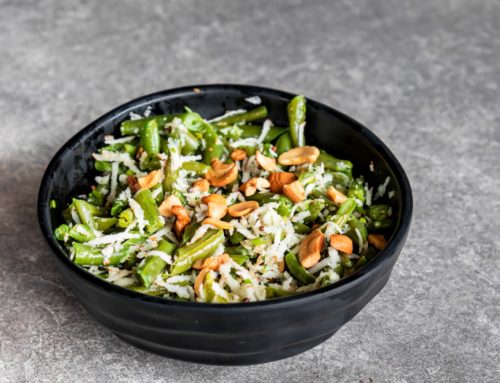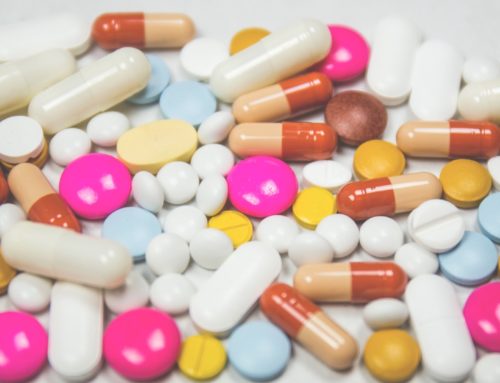“To be naked is to be oneself.” — John Berger
According to a poll of over 1000 Americans, nearly two-thirds of Millennials are regularly sleeping naked, with generations such as Gen X and Baby Boomers not far behind surveying at 45% and 39%, respectively (1).
1. Helps to combat insomnia and improve quality of sleep
You might think that sleeping without any clothes on sounds like a rather cold and exposing endeavor — and about that, you wouldn’t be entirely wrong.
Science suggests that when you skip the extra layer between your body and the sheets, your body actually improves its ability to regulate the temperature throughout the night. Researchers found a link between the frequent experiencing of wakefulness and an elevated core body temperature, indicating that insomnia may be more directly tied to thermoregulation than initially understood (2).
During stages of deep sleep, the body naturally undergoes a decrease in temperature, which may be the reason that 54% of surveyed Americans report sleeping better in the nude.
By sleeping in these cooler conditions, your body will experience a decrease in blood pressure which allows your parasympathetic nervous system — also known as the “rest and digest” system — to activate and get to work repairing and preparing your body for the hard day ahead.
The activation of the parasympathetic nervous system is absolutely crucial to normal functioning as well as the release of several different hormones and reparative enzymes. If you’re a poor sleeper or someone who easily gets hot at night, it might be worth ditching the pajamas and seeing how you go (3).
2. Increases self-image and body confidence
It’s very normal to experience insecurity when it comes to the look and feel of our bodies and anxiety surrounding these fears can often become exacerbated when we’re faced with the idea of being seen, or seeing ourselves, without any clothes on.
Science, however, suggests the contrary. In a particularly revealing study (pun intended), fifteen participants suffering from a high degree of body-image insecurity, low self-esteem, and a decrease in their normal life satisfaction underwent a 4-day intervention program where they were required to spend most of their time at home in the nude. As a result, participants reported a meaningful and significant improvement in all three areas measured, with long-lasting results to remain, even after completion of the study (3).
Additional research has confirmed these findings, supporting the idea that becoming well acquainted with your naked body each morning and night by sleeping naked could provide a host of positive ramifications for the way you see yourself, both inside and outside of the bedroom (4).
3. Improves mental and physical health
We all likely know the importance of getting a good night’s sleep first-hand, however, research suggests that there may be more to the story.
A ground-breaking study from Johns Hopkins Medicine found that waking up several times throughout the night is far more detrimental to an individual’s mood and state of mental health, than if they were to obtain the same shortened amount of sleep without any interruption whatsoever (5).
From what we already know about the relationship between temperature and wakefulness throughout the night, this research provides all the more reason to choose nude.
What’s more, is that secretion of the human growth hormone also referred to as hGH, becomes drastically inhibited during the nocturnal awakening of any duration. HGH is a regulatory hormone involved in a range of vital functions within the body, that range from cell reproduction and regeneration to muscle growth, heart function, learning cognition, memory, the maintenance of energy levels, and both mental and emotional well-being (6).
Adults with a deficiency of this hormone often suffer from much higher rates of depression, meaning that from a health standpoint ensuring a high-quality of consistent and uninterrupted sleep is a must (7).
4. Supports weight loss while keeping your warm
Not only is there evidence to suggest that sleeping naked can increase your metabolism, but new research from the National Institute of Health has revealed auxiliary benefits that come in the form of brown fat.
Brown fat is a type of adipose tissue within the body that’s designed to keep us warm by burning off energy in the form of heat. Studies have found that individuals who increase their levels of brown fat experience both protection from diet-induced obesity, a reduction in overall body fat, as well as an increased rate of energy usage at rest (8).
Because it’s there to keep us warm, one way of encouraging the body to create more of this helpful fat is by sleeping at a lower temperature. The body recognizes the cooler conditions which then triggers a feedback mechanism that increases the metabolism and works to preserve a constant and comfortable temperature (9).
In addition to helping with healthy weight loss due to increased metabolism, brown fat has also been linked to the regulation of glucose homeostasis and insulin sensitivity, suggesting that it may be implicated in the function of our bodies in more ways than are currently understood (10).
Why not go naked to bed and see for yourself — you might be surprised!
Alexandra Walker-Jones — January 2021
Text References:
- Naked at Night: A Study on Sleepwear Preferences. Mattress Advisor (2019).
- Lushington K, Dawson D, Lack L. Core body temperature is elevated during constant wakefulness in elderly poor sleepers. Sleep. 2000 Jun 15;23(4):504–10. PMID: 10875557.
- Späth-Schwalbe E, Hundenborn C, Kern W, Fehm HL, Born J. Nocturnal wakefulness inhibits growth hormone (GH)-releasing hormone-induced GH secretion. J Clin Endocrinol Metab. 1995 Jan;80(1):214–9.
- West, K. (2020). A nudity-based intervention to improve body image, self-esteem, and life satisfaction. International Journal of Happiness and Development, 6(2), 162–172.
- West, K. Naked and Unashamed: Investigations and Applications of the Effects of Naturist Activities on Body Image, Self-Esteem, and Life Satisfaction. J Happiness Stud19, 677–697 (2018).
- Finan, P. H., Quartana, P. J., & Smith, M. T. (2015). The Effects of Sleep Continuity Disruption on Positive Mood and Sleep Architecture in Healthy Adults. Sleep, 38(11), 1735–1742.
- Prodam F, Caputo M, Belcastro S, Garbaccio V, Zavattaro M, Samà MT, Bellone S, Pagano L, Bona G, Aimaretti G (December 2012). “Quality of life, mood disturbances and psychological parameters in adult patients with GH deficiency”. Panminerva Medica. 54 (4): 323–31.
- Cypess, A. M., & Kahn, C. R. (2010). Brown fat as a therapy for obesity and diabetes. Current opinion in endocrinology, diabetes, and obesity, 17(2), 143–149. https://doi.org/10.1097/MED.0b013e328337a81f
- Ouellet, V., Labbé, S. M., Blondin, D. P., Phoenix, S., Guérin, B., Haman, F., … & Carpentier, A. C. (2012). Brown adipose tissue oxidative metabolism contributes to energy expenditure during acute cold exposure in humans. The Journal of clinical investigation, 122(2), 545–552.
- Lee P, Smith S, Linderman J, Courville AB, Brychta RJ, Dieckmann W, Werner CD, Chen KY, Celi FS. Temperature-acclimated brown adipose tissue modulates insulin sensitivity in humans Diabetes. 2014 Jun 22. pii: DB_140513. [Epub ahead of print]. PMID: 24954193.





